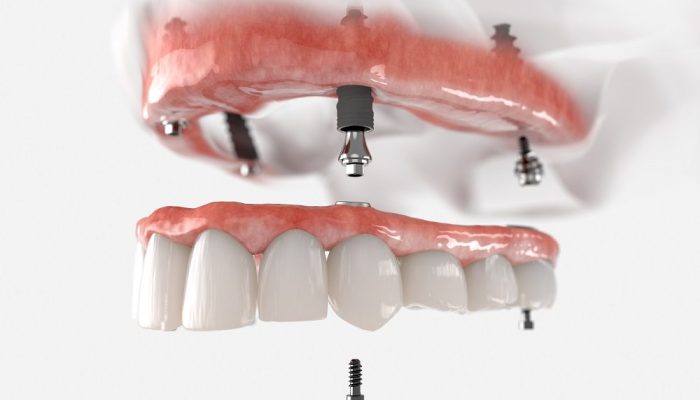
Dental implants have emerged as a revolutionary solution in the field of dentistry, offering a reliable and long-lasting option for individuals with missing teeth. This advanced dental technology not only enhances the aesthetic appeal of a smile but also plays a crucial role in maintaining oral health and improving overall quality of life. This article explores the various aspects of dental implants, including their benefits, the implantation process, and aftercare considerations.
Understanding Dental Implants
Dental implants are artificial tooth roots made of biocompatible materials, typically titanium, that are surgically placed into the jawbone. These implants provide a strong foundation for fixed or removable replacement teeth that are designed to match the natural teeth. Unlike traditional dentures or bridges, dental implants fuse with the jawbone, offering a stable and permanent solution for tooth replacement.
Benefits of Dental Implants
- Improved Appearance: Dental implants are designed to look and feel like natural teeth. They are customized to match the color, shape, and size of surrounding teeth, resulting in a seamless and aesthetically pleasing smile.
- Enhanced Functionality: Implants restore full chewing ability, allowing individuals to eat their favorite foods without discomfort. Unlike dentures, which can slip and cause difficulties in eating and speaking, implants provide stability and functionality akin to natural teeth.
- Durability and Longevity: With proper care, dental implants can last a lifetime. They are highly durable and resistant to decay, making them a cost-effective long-term solution compared to other dental restorations.
- Preservation of Jawbone Health: Dental implants stimulate the jawbone, preventing bone loss that typically occurs when teeth are missing. This helps maintain the natural shape of the face and prevents the sunken appearance that can result from missing teeth.
- Improved Oral Health: Unlike dental bridges, which require the alteration of adjacent teeth, implants do not affect neighboring teeth. This helps preserve the integrity of surrounding teeth and promotes overall oral health.
The Dental Implantation Process
The process of getting dental implants involves several steps and may take several months to complete. Here is an overview of the typical stages:
- Initial Consultation: The first step involves a thorough examination by a dental professional. This includes X-rays and impressions of the teeth and jaw to determine the suitability of implants and develop a customized treatment plan.
- Surgical Placement: During the surgical procedure, the dentist places the implant into the jawbone. This is typically done under local anesthesia to ensure comfort. After placement, a healing period of several months is required for the implant to fuse with the jawbone in a process called osseointegration.
- Abutment Placement: Once the implant has integrated with the jawbone, a small connector called an abutment is attached to the implant. This serves as the base for the artificial tooth.
- Placement of the Artificial Tooth: The final step involves attaching a custom-made crown (artificial tooth) to the abutment. The crown is designed to blend seamlessly with the natural teeth, completing the restoration process.
Aftercare and Maintenance
Proper aftercare is essential to ensure the longevity and success of dental implants. Here are some important tips for maintaining implants:
- Good Oral Hygiene: Regular brushing and flossing are crucial to prevent plaque buildup and maintain gum health. Special tools such as interdental brushes may be recommended to clean hard-to-reach areas around the implants.
- Regular Dental Check-ups: Routine visits to the dentist are important to monitor the health of the implants and surrounding tissues. Professional cleanings and examinations help detect any potential issues early on.
- Healthy Lifestyle Choices: Avoiding smoking and excessive alcohol consumption can significantly improve the success rate of dental implants. These habits can negatively impact healing and increase the risk of implant failure.
- Protective Measures: Wearing a mouthguard during sports and avoiding habits such as teeth grinding can protect the implants from damage.
Conclusion
Dental implants have transformed the field of restorative dentistry, offering a highly effective and permanent solution for missing teeth. Their ability to mimic the appearance and function of natural teeth, along with their numerous health benefits, makes them an ideal choice for many individuals. By understanding the implantation process and committing to proper aftercare, patients can enjoy the life-changing benefits of dental implants and restore their smiles with confidence.








buy rybelsus http://rybelsus.tech/# rybelsus cost
buy semaglutide online
Где и как купить диплом о высшем образовании без лишних рисков